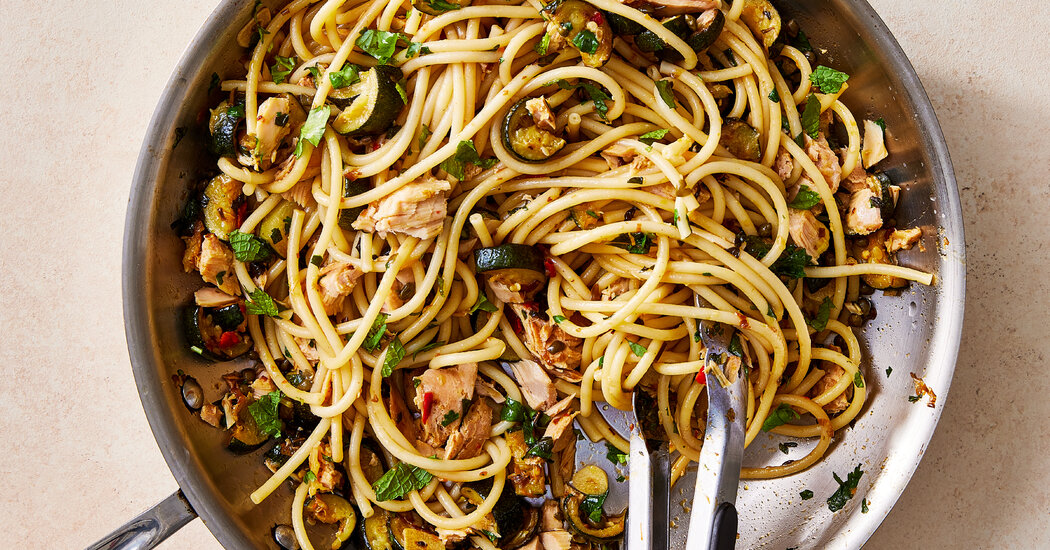
Tinned fish in pasta can be shy. Anchovies, for example, are often dissolved in oil for a midnight pasta, camouflaged under the olives of a puttanesca or hidden among garlicky bread crumbs. Their deep umami quietly integrates the other ingredients without imposing much substance of their own. Small children and the fish-finicky are never the wiser.
Pasta with tuna, on the other hand, is fish forward. Mixed in at the end of cooking (tuna can toughen if heated too much), the chunks keep a high profile, asserting their oceanic brightness and adding protein and heft.
Tuna pasta isn’t only for fish fans, but for anyone who loves an easy, weeknight-friendly pantry meal. Stir a can or two of tuna into a big bowl of pasta and you don’t have to do much more. A few alliums sautéed in olive oil, a ladleful of pasta water and a scattering of herbs or capers are all it takes to bring everything together.
It’s pretty much the same routine with this simple recipe, with a significant, summery addition: I sauté thick zucchini slices along with some scallions and garlic, letting them condense, brown and release their sweet juices into the pan. The zucchini lightens the pasta with its soft, slippery texture, while grounding it with subtle earthy notes.
As always, when using any kind of tinned or canned fish, look for something high-quality and preferably packed in olive oil. Clear jars that allow you to see what you’re getting are often better than tins.
Many fish pasta dishes rely on red-pepper flakes for a pop of heat. But here, I wanted something brighter and rounder. So instead, I dollop on some chile paste right at the end.
Now, I’ve made this dish with several types — chile crisp, Calabrian chile paste, sambal oelek, Sriracha. Each paste contributes a host of nuances, spices and textures, leading the dish in slightly different directions. Stick with your favorite and you’ll do no wrong.
Since their heat levels vary, go slow, spooning on a little at a time and along the way. Then place the jar on the table and let your guests help themselves to more if they like. I wouldn’t overdo it, though. Tuna performs best when it has the spotlight to itself.



